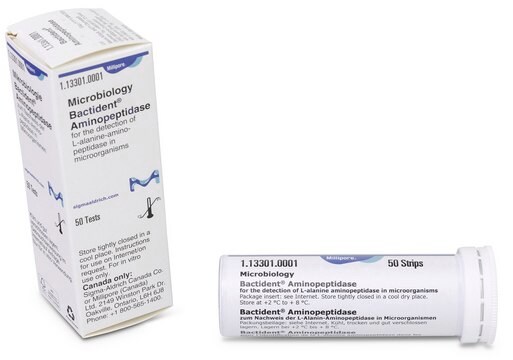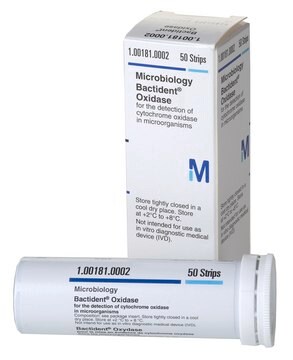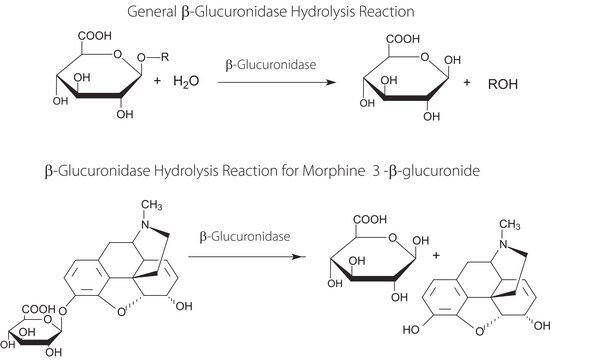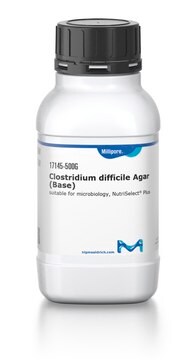75554
Aminopeptidase Test Strips
suitable for agriculture, clinical testing, environmental, food and beverages, pharmaceutical, microbiology and specific enzyme detection
About This Item
clinical testing
environmental
food and beverages
pharmaceutical
microbiology
Produits recommandés
Nom du produit
Aminopeptidase Test, suitable for microbiology
Gamme de produits
BioChemika
Niveau de qualité
Durée de conservation
limited shelf life, expiry date on the label
Technique(s)
microbe id | specific enzyme detection: suitable
Spectre d'activité de l'antibiotique
Gram-negative bacteria
Application(s)
agriculture
clinical testing
environmental
food and beverages
pharmaceutical
microbiology
Température de stockage
2-8°C
Adéquation
bacteria
Description générale
Application
L-Alanine aminopeptidase is an enzyme localized in the bacterial cell wall which cleaves N-terminal L-alanine from various peptides. It is found almost exclusively in Gram-negative microorganisms. Studied Gram-positive or Gram-variable microorganisms show no or very weak activity. The aminopeptidase test is a reliable method for determining the Gram behavior. It does not replace Gram-staining, as it cannot show morphology.
Composants
Vous ne trouvez pas le bon produit ?
Essayez notre Outil de sélection de produits.
Code de la classe de stockage
11 - Combustible Solids
Classe de danger pour l'eau (WGK)
WGK 3
Point d'éclair (°F)
Not applicable
Point d'éclair (°C)
Not applicable
Équipement de protection individuelle
Eyeshields, Gloves, type N95 (US)
Faites votre choix parmi les versions les plus récentes :
Déjà en possession de ce produit ?
Retrouvez la documentation relative aux produits que vous avez récemment achetés dans la Bibliothèque de documents.
Les clients ont également consulté
Articles
Clostridia are relatively large, gram-positive, rod-shaped bacteria that can undergo only anaerobic metabolism.
An article regarding the Role of Clostridium perfringens and their detection, identification, and differentiation from Sigma-Aldrich.com
For microbiologists the most fundamental stain was developed in 1884 by the Danish bacteriologist Hans Christian Gram.
Sigma-Aldrich.com presents an article concerning Differentiation of Escherichia coli from coliforms.
Notre équipe de scientifiques dispose d'une expérience dans tous les secteurs de la recherche, notamment en sciences de la vie, science des matériaux, synthèse chimique, chromatographie, analyse et dans de nombreux autres domaines..
Contacter notre Service technique









